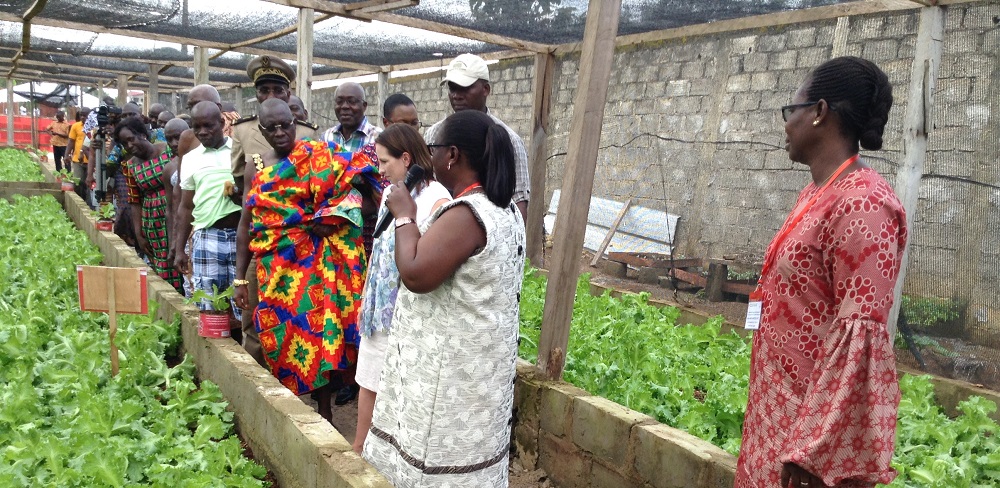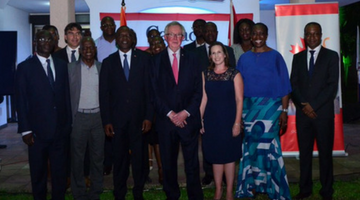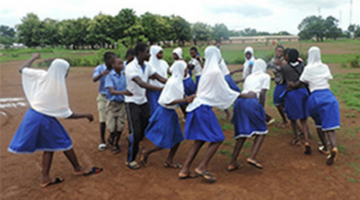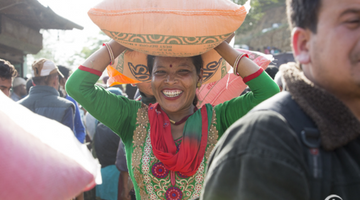Sowing seeds for gender equality through agriculture in Côte d’Ivoire
Ambassador Julie Shouldice presents agricultural equipment to local farmers
In Côte d’Ivoire, the fight for gender equality has its roots on the farm.
Women hold only 1/10 of the seats in the country’s National Assembly, but are responsible for up to 80% of Côte d’Ivoire’s food production.
Yet many of these women work on plots of land they do not own, in areas with high levels of deforestation.
The Embassy of Canada to Côte d’Ivoire, along with local non-government organization (NGO) “La Pierre Angulaire,” is addressing gender equality and they’re starting by shifting the role of women in agriculture.
Growing plants without soil
Most of Côte d’Ivoire’s farmland is male-owned and dedicated to cash-crops like cocoa and coffee. Canada is helping women become more self-sufficient by growing produce that can be used for local consumption and sold in the local market.
In a training program facilitated by “La Pierre Angulaire” and the Canadian embassy, 40 women in the eastern town of Niablé learned hydroponic farming skills.
“The NGO leaders taught us a lot of things to help us take charge of ourselves. We will continue the work.” - Village spokeswoman
Hydroponic farming is a technique which grows plants without using soil. It is an environmentally friendly option, which consumes less water than traditional farming methods.

Ambassador Shouldice visits the new plot of land with Madeleine Morokro from La Pierre Angulaire.
"With this new way of growing, we no longer have to wait for the rains that have become rare in recent years. We can plant and sell our produce at any time,” a project participant said.
The technique not only improves access to nutritious food and empowers women, but also offers an alternative approach to farming in an environment affected by climate change.
In many of Côte d’Ivoire’s agricultural regions, the threat of climate change is worsened by the harm large-scale farming has inflicted on the ecosystem.
Earning an income through conservation

Ambassador Shouldice plants a tree as part of the reforestation project.
Residents of the region near Comoé National Park, in the northeast of the country, have seen deforestation and human carelessness firsthand.
With Ivorian NGO “La Colombe Ivoirienne pour le Bien Être Social,” the Canadian embassy worked with local populations to develop sustainable agricultural activities outside the boundaries of the park.
Over 200 women participated in a project to reforest the land and establish small-scale farms for beekeeping and sustainable agriculture. The yield is then sold locally, in the form of products like honey, shea butter and traditional akpi seeds.
For vulnerable women in the area, the project generates a source of income and independence – a reliable path to sustainable development.
A spokeswomen said the project is "important for us women and for our children, who will benefit from the fruits of the trees we have planted."
Women play a pivotal role in all economic and crop production activities throughout Côte d’Ivoire and Africa. Projects such as these ensure greater financial autonomy for these women who can attain a more equal position in their families and communities.
Related Links
- Date Modified:



